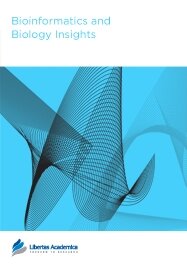

Publication Date: 03 Jun 2009
Type: Original Research
Journal: Bioinformatics and Biology Insights
doi: 10.4137/BBI.S2236

In this report, we revisited simple features that allow the classification of coding sequences (CDS) from non-coding DNA. The spectrum of codon usage of our sequence sample is large and suggests that these features are universal. The features that we investigated combine (i) the stop codon distribution, (ii) the product of purine probabilities in the three positions of nucleotide triplets, (iii) the product of Cytosine, Guanine, Adenine probabilities in 1st, 2nd, 3rd position of triplets, respectively, (iv) the product of G and C probabilities in 1st and 2nd position of triplets. These features are a natural consequence of the physico-chemical properties of proteins and their combination is successful in classifying CDS and non-coding DNA (introns) with a success rate >95% above 350 bp. The coding strand and coding frame are implicitly deduced when the sequences are classified as coding.
PDF (928.11 KB PDF FORMAT)
RIS citation (ENDNOTE, REFERENCE MANAGER, PROCITE, REFWORKS)
BibTex citation (BIBDESK, LATEX)
XML
PMC HTML
Publishing in Air, Soil and Water and Water Research was the best experience I have had so far in an academic context. The review process was fair, quick and efficient. I congratulate the team at Libertas Academica for a very well managed journal.Magnus Karlsson (IVL Swedish Environmental Research Institute, Stockholm, Sweden) What Your Colleagues Say
Copyright © 2012 Libertas Academica Ltd (except open access articles and accompanying metadata and supplementary files.)
FacebookGoogle+Twitter
PinterestTumblrYouTube